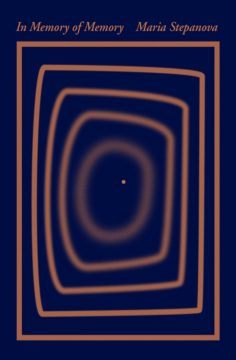Linda Kinstler at the LARB:
 In Russian, the word for oblivion is “zabveniye,” suggesting a prolonged or unending state of forgetting, a designated holding cell for all forgotten things. “Oblivion, the copycat of nonexistence, has a new twin brother: the dead memory of the collector,” Maria Stepanova writes in In Memory of Memory. Beautifully translated by the poet Sasha Dugdale, the book teems with oblivion. Family heirlooms are “dragged out of their oblivion,” experiences and memories are saved from its cold embrace. “All the past is carried off into oblivion,” Stepanova writes, “and it leaves a clear space for the future.” Oblivion is a kind of storage facility for exhausted histories. Inside its walls, Stepanova acts as collector and critic, and makes her temporary home.
In Russian, the word for oblivion is “zabveniye,” suggesting a prolonged or unending state of forgetting, a designated holding cell for all forgotten things. “Oblivion, the copycat of nonexistence, has a new twin brother: the dead memory of the collector,” Maria Stepanova writes in In Memory of Memory. Beautifully translated by the poet Sasha Dugdale, the book teems with oblivion. Family heirlooms are “dragged out of their oblivion,” experiences and memories are saved from its cold embrace. “All the past is carried off into oblivion,” Stepanova writes, “and it leaves a clear space for the future.” Oblivion is a kind of storage facility for exhausted histories. Inside its walls, Stepanova acts as collector and critic, and makes her temporary home.
Memory is not a novel but “a romance,” a love affair with memory and its advocates. “This book about my family is not about my family at all,” she writes, “but something quite different: the way memory works, and what memory wants from me.”
more here.
